Predator for thrips in no-spray garden ??
saldut
13 years ago
Related Stories
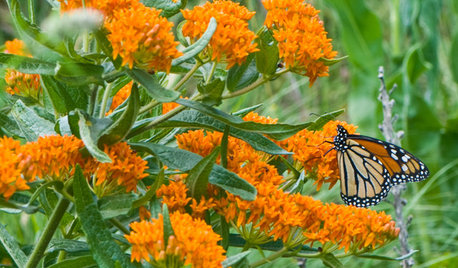
GARDENING GUIDESGreat Design Plant: Butterfly Milkweed, a Beacon in the Prairie
Vivacious orange flowers for you, nectar for the butterflies and bees. Asclepias tuberosa is worth planting for more reasons than one
Full Story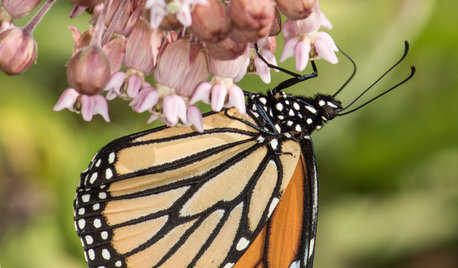
FLOWERS AND PLANTSHelp Monarchs and Other Butterflies by Planting Common Milkweed
Summer-blooming Asclepias syriaca is an important larval host plant for the monarch butterfly and attracts a number of pollinating insects
Full Story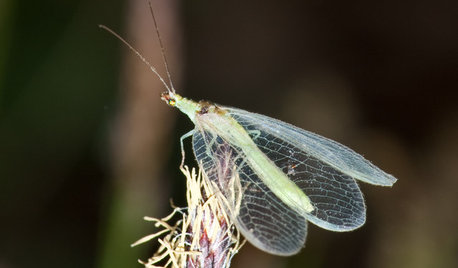
GARDENING GUIDESLook Out for Lacewings: Beneficial Insects Coming to a Garden Near You
Lacewings are delicate insects that produce alligator-like, hungry offspring that devour aphids and other garden pests
Full Story
EDIBLE GARDENSHow to Grow Your Own Sweet Summer Crops
This guide will help any gardener get started on growing the freshest warm-season veggies and berries for summer
Full Story
GARDENING FOR BUTTERFLIES3 Ways Native Plants Make Gardening So Much Better
You probably know about the lower maintenance. But native plants' other benefits go far beyond a little less watering and weeding
Full Story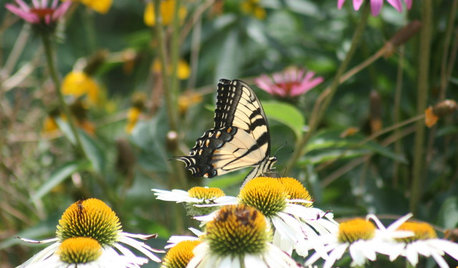
GARDENING GUIDESLessons in the Rewards of Selfless Gardening
Let go of gardening for your own vision and watch the garden’s own true vision come forth
Full Story
GARDENING GUIDES4 Herb Container Gardens for Fabulous Global Cuisine
Tingle your taste buds with the unbeatable taste of fresh herbs in your Italian, Asian, Mexican or French fare
Full Story
CONTAINER GARDENS7 Deer-Resistant Flowers for Your Summer Containers
Grow these as protection for edibles or just for their colorful beauty — deer might not like them, but everyone else will
Full Story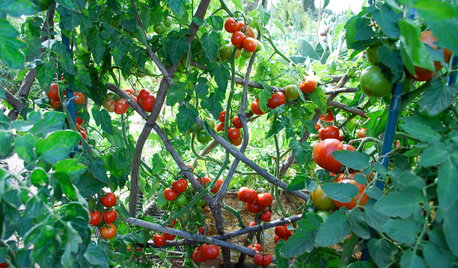
GARDENING GUIDESTexas Gardener's March Checklist
So long, freezing temperatures. It's time to kick off spring planting, lavish attention on lawns and sprinkle seeds to your heart's content
Full Story0
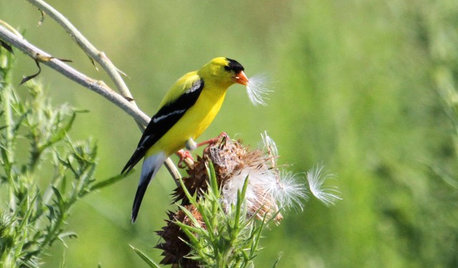
GARDENING FOR BIRDSWild Birds Transform a Woman’s Garden and Life
How Sharon Sorenson created a wildlife haven and became the Bird Lady of Southern Indiana
Full StoryMore Discussions








sammy zone 7 Tulsa
prairiemoon2 z6b MA
Related Professionals
Beachwood Landscape Architects & Landscape Designers · Belmont Landscape Architects & Landscape Designers · Grand Haven Landscape Architects & Landscape Designers · Ilchester Landscape Architects & Landscape Designers · Mount Wilson Landscape Architects & Landscape Designers · Dickinson Landscape Contractors · Hurricane Landscape Contractors · Middletown Landscape Contractors · Ocoee Landscape Contractors · Paso Robles Landscape Contractors · Setauket-East Setauket Landscape Contractors · Yuba City Landscape Contractors · Lauderdale Lakes Landscape Contractors · Merrifield Landscape Contractors · Eau Claire Siding & ExteriorssaldutOriginal Author
plantloverkat north Houston - 9a
saldutOriginal Author
gardennatlanta
harborrose_pnw
harborrose_pnw
malcolm_manners
saldutOriginal Author